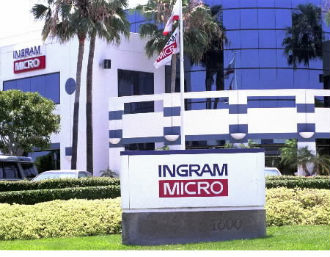 Microsoft is concerned that channel partners are seeing difficulties in the IT skills gap and evolving customer buying habits.
Microsoft is concerned that channel partners are seeing difficulties in the IT skills gap and evolving customer buying habits.
According to Gavriella Schuster, corporate VP of One Commercial Partner at Microsoft, the number of partners transacting through Microsoft’s Cloud Solution Provider programme grew 83 percent in 2017, with a 64 percent increase in Gold Cloud competencies. The vendor says it now has over 68,000 cloud partners, a 33 percent increase year over year.
But it said that it is being hamstrung by a lack of available workers.
Schuster said: “The top challenge I continually hear is the war on talent. We continue hearing from partners that there is a skills gap in the market, there’s a lack of people trained to work in the cloud.”
Microsoft launched Azure Skills Training a year ago, which has seen 100,000 courses completed to-date. Schuster said cloud training will continue to be a focus area for Microsoft this year.
“The good news is that there are a lot of individuals in the technology ecosystem that we can help retrain into new roles in the cloud to help participate in this new economy”, she said.
Schuster said that 95 percent of its commercial revenue comes from partners, which Vole is leaning on to get sales in its four solutions areas: modern workplace, business apps, apps and infrastructure and data and artificial intelligence services.
“Our customers are buying technology differently. They’re not buying it from within the centralised IT. More of the business decision makers are actually thinking about their line of business and how they want technology to play a role”, Schuster said.
“So in order for us to get them the kind of information and insight [they want], the way the technology can really help them, the right solution, we have to think about the way we sell our technology differently.”
She said Microsoft’s co-selling programme, where Microsoft and partners co-sell Microsoft and partner services and solutions to business decision makers together with consumption-based compensation is OK. The vendor claims in the six months since its launch, the pilot generated $6 billion in partner pipeline and over $1 billion in partner revenue.
Microsoft has expanded the programme beyond ISVs to include any partner building IP on Azure.
“Our partners see higher cloud consumption meaning higher consumption of their services. Our co-sell idea works because it incentivises Microsoft sellers and enables us to sell together with our partners, and it expands our partners’ sales capacity, particularly as we move into large-scale enterprise customers where some of these partners may not have the in, the credibility, or the foothold to have the conversation with the business decision makers of these organisations.”
 Contact centre VAR Connect Managed Services has written a cheque for the next-gen outfit CoolHarbour.
Contact centre VAR Connect Managed Services has written a cheque for the next-gen outfit CoolHarbour.


















